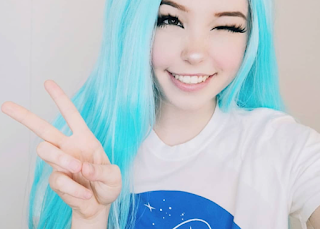The Ethical Quandary of InfluencersGoneWild: Unraveling the Dilemma of Free OnlyFans Content
Introduction
In the digital era, social media influencers and content
creators hold significant sway over online communities. Platforms like OnlyFans
have revolutionized content creation and monetization, offering creators a
space to share exclusive content with subscribers for a fee. However, the rise
of websites like InfluencersGoneWild raises ethical questions about the
distribution of such content. This article delves into the complexities
surrounding the phenomenon of InfluencersGoneWild
and the broader implications for content creators and consumers alike.
Understanding InfluencersGoneWild
InfluencersGoneWild is a website notorious for providing
free access to content originally shared on subscription-based platforms like
OnlyFans. The platform hosts a plethora of material ranging from photoshoots to
explicit content, all without the consent of the creators. While it presents
itself as a haven for free content seekers, its operations raise concerns about
intellectual property rights, consent, and the sustainability of content
creation ecosystems.
The Legal and Ethical Quagmire
At the heart of the issue lies a clash between legality and
morality. While InfluencersGoneWild may not directly violate laws in certain
jurisdictions, it certainly breaches ethical boundaries by profiting from
content creators' work without consent. Most creators rely on platforms like
OnlyFans as a primary source of income, and the unauthorized distribution of
their content undermines their livelihoods. Moreover, it perpetuates a culture
of entitlement where consumers feel entitled to access content without
compensating the creators adequately.
Implications for Content Creators
For content creators, platforms like OnlyFans represent a
means of financial independence and creative expression. However, the existence
of websites like InfluencersGoneWild introduces uncertainties into their
careers. The fear of content piracy looms large, discouraging creators from
sharing their most intimate or exclusive content for fear of exploitation. This
ultimately stifles creativity and limits the diversity of content available to
consumers.
Consumer Behavior and Ethical Consumption
Consumers play a crucial role in shaping the digital
landscape. The rise of InfluencersGoneWild underscores the need for a nuanced
understanding of ethical consumption. While the allure of free content may be
tempting, consumers must recognize the implications of their actions. By
engaging with platforms that profit from content piracy, they inadvertently
contribute to the devaluation of creators' work and the erosion of ethical
standards in the digital realm.
The Role of Platform Responsibility
In the age of digital platforms, the onus falls on companies
to uphold ethical standards and protect the rights of content creators. While
platforms like OnlyFans implement measures to combat piracy, the decentralized
nature of the internet presents challenges in enforcement. Nevertheless,
concerted efforts must be made to hold platforms accountable for facilitating
the unauthorized distribution of copyrighted material.
Navigating the Way Forward
Addressing the issue of platforms like InfluencersGoneWild
onlyfans requires a multifaceted approach. Firstly, there must be
greater awareness and education surrounding intellectual property rights and
ethical consumption. Content creators should also explore alternative revenue
streams and diversify their online presence to mitigate the impact of piracy.
Additionally, regulatory bodies and industry stakeholders must collaborate to
develop robust mechanisms for enforcing copyright laws in the digital sphere.
Conclusion
In the digital age, the proliferation of platforms like InfluencersGoneWild Belle delphine poses significant challenges to content creators, consumers, and digital ecosystems at large. The ethical dilemmas surrounding the unauthorized distribution of OnlyFans content underscore the need for greater accountability, awareness, and regulation in the online space. As we navigate these complexities, it is imperative that we prioritize the rights and livelihoods of content creators while fostering a culture of ethical consumption in the digital realm. Only through collective action can we ensure a sustainable and equitable future for all stakeholders involved.



Comments
Post a Comment